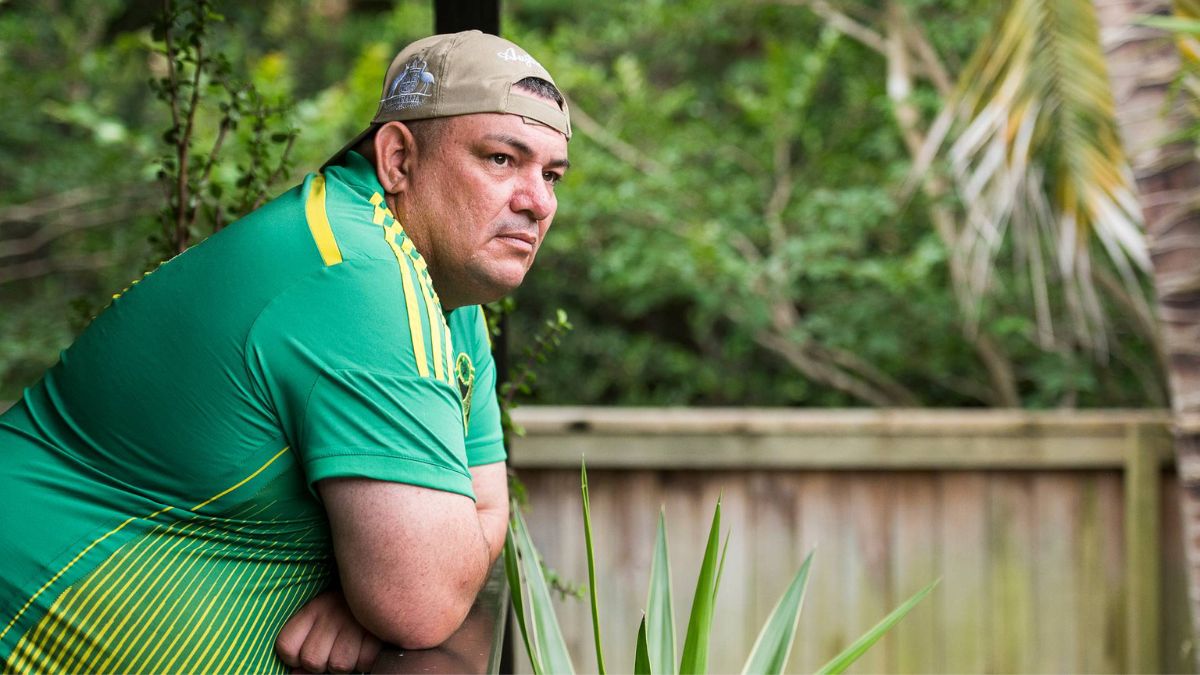
Criminal justice – Disability Royal Commission Final Report
In this picture: CID staff member Justen Thomas.
The Disability Royal Commission calls for action on criminal justice.
Justen Thomas is a proud Darug man and works in the CID advocacy team. He told the Royal Commission what he thought about the police and court support and diversion program run the Justice Advocacy Service in NSW: “We need the program running throughout Australia, so we all of us, vulnerable disability people, can get that kind of advocate, or help within the system. Because if you don’t, things can seriously go wrong later on. And the more we can do things, the better our country can be.”
What the Commissioners said
People with disability, particularly those with cognitive disabilities, are over-represented at all stages of the criminal justice system.
The over-representation of First Nations people with cognitive disability in custody, particularly in youth detention, is a largely hidden national crisis.
Children with disability in youth detention have complex needs and are likely to have experienced a lot of trauma. They are exposed to an increased risk of violence, abuse, neglect and exploitation while in detention. Placing children with disability in detention increases the chances they will become enmeshed in the criminal justice system.
Australia has international obligations to take action to promote the human rights of people with disability in the criminal justice system, through our laws, policies and services.
The Cognitive Impairment Diversion Program (now part of the Justice Advocacy Service at the Intellectual Disability Rights Service (IDRS) in NSW) was a best practice model of person-centred and rights-focused diversion from the criminal justice system.
The risk of indefinite detention for people with disability is unacceptable. Laws allowing indefinite detention must be changed.
The responsibilities of the NDIS and the criminal justice system to provide supports for people with disability need to be clarified. Greater flexibility is needed to support transition planning for people with disability leaving gaol.
What the Commissioners recommended
The Commissioners made many recommendations to make the criminal justice system work fairly for people with disability. Key recommendations include:
- Improve police responses to people with disability.
- NSW and other states with local court diversion programs should evaluate, review and improve the programs. Other states should create diversion programs.
- Improve coordination with the NDIS and sort out the demarcation issues between NDIS and justice system responsibilities.
- Provide information to lawyers and courts on disability adjustments, supports and services.
- Provide the disability supports that people need in jails and juvenile justice centres. This starts with screening for disability, including culturally safe screening and assessment.
- Train detention staff to prevent cruel and degrading behaviour.
- Prohibit solitary confinement in youth detention. NSW should also review the use of seclusion in the Justice Health and Forensic Mental Health Network.
- Raise the age of criminal responsibility to 14.
- Develop an action plan to end violence against women and children with disability.
- Bring violence by support workers into the definition of family and domestic violence.
What CID says
CID welcomes the Royal Commission’s recommendations which provide a blueprint for many key reforms in the justice system.
Since the 1980s, CID has been pressing for major improvements in how the NSW justice system responds to people with intellectual disability both in the community and in detention.
We successfully advocated for establishment of the NSW Community Justice Program which provided community accommodation and support to over 300 people with intellectual disability and serious histories of offending. These people then came into the NDIS which has taken a narrower view of its role than did the Community Justice Program. The Commission’s recommendations address this gap.
We supported the establishment of the Cognitive Impairment Diversion Program (CIDP) by the Intellectual Disability Rights Service which was already running a program providing support to people with intellectual disability in police interviews and in court. The CIDP operated in two courts.
In 2020, we launched the Justice Matters campaign when funding for the IDRS programs was in jeopardy. Our campaign was successful. IDRS’s revamped Justice Advocacy Service provides police and court support statewide and a diversion program in six of the busiest local courts. The Justice Advocacy Service has First Nations staff and strong links with First Nations communities.
We welcome the current evaluation of the Justice Advocacy Service and expect it will provide a basis to extend the diversion program to more courts and ultimately statewide.



 1800 424 065
1800 424 065 













